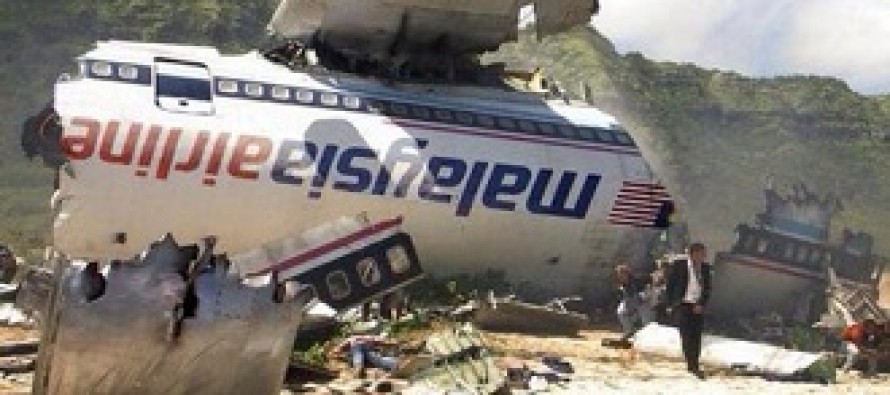Shooting down MH 17 : Is it a war crime?

The UN High Commissioner for Human Rights Ms. Navi Pillay, a former judge of South Africa, recently considered a war crime of the shooting down on 17th July of the Malaysian Airlines MH 17 in the rebel-held territory near Ukrainian border with Russia.
It is argued the action to shoot a commercial plane bound for Kuala Lumpur from Amsterdam killing 298 people on board would be a war crime, if the armed conflict in the eastern Ukraine between Ukrainian soldiers and rebels constitutes a war under international law. If it is established that it is a war under law, then the first step is to find out who can authorise for the trial to begin.
The next step is to ascertain against whom charges of war crimes can be laid. It is clear that a person or persons who has the authority to order to shoot down the plane, and the person who actually shot the plane, are the persons who are to be charged with war crimes.
The purpose creation of the International Criminal Court (ICC) in 2002 by the UN under the Rome Statute of 1998 is to try persons who are charged with war crimes, crimes against humanity, genocide , extrajudicial executions, torture and forced disappearances, although the ICC is not entitled to try crimes committed before 2002.
War crime includes grave breaches of the 1949 Geneva Conventions of Armed Conflicts against the civilian population. War crimes, genocide and crimes against humanity are considered as international crimes because it denigrates human dignity.
According to Amnesty International, certain crimes pose so serious a threat to the international community as a whole, that states have a legal and moral duty to prosecute an individual responsible for it; no place should be a safe haven for those who have committed international crimes.
In the case of MH 17, since Russia and Ukraine are not parties to the ICC, only the Security Council can authorise the trial before the ICC. However if we go by the current attitude of Russia towards the rebels, Russia, being a veto-wielding permanent member of the UN Security Council, may veto the resolution in the Council. Therefore the process of commencement of trial through the UN will be stopped.
The other avenue remains is the universal jurisdiction. That means any state has jurisdiction to the suspected accused despite his/her nationality so long that individual is found in its territorial jurisdiction.
The concept of universal jurisdiction is therefore closely linked to the idea that certain international laws are owed to the entire world community, as well as- that certain international law obligations (jus cogens), are binding on all states and they cannot be modified by treaty.
In that case, if the accused is found or present in a state which is a party to the ICC or exercises universal jurisdiction the accused person or persons may be put on trial for committing war crimes. (It is noted that Bangladesh became a party of the ICC on 23rd March 2010 and also is empowered to exercise universal jurisdiction.)
A person who allegedly commits a crime can always be charged until that person is alive. Unlike civil litigation or disputes, length of time does not affect crime. In other words, it does not have statutory limitation.
In view of the above, those who allegedly committed genocide, crimes against humanity or war crimes (grave breaches of the 1949 Geneva Conventions) during the Nazi Germany more than 60 years ago are being arrested and tried. In Cambodia, Khmer Rouge leaders who alleged committed crimes against humanity and turned the country into ‘killing fields’ during 1975-79 are being put on trial after 30 years by a Tribunal with the backing of the UN. In Bangladesh the two tribunals are in the process to try the accused who are charged with crimes against humanity forty three years ago and many have been convicted and one of them was hanged in December 2013.
The days of sovereign immunity for the heads of state who are accused of crimes against humanity have gone. The concept received a great deal of prominence with the case of late Chilean dictator President Augusto Pinochet who was arrested in London in October 1998 on a request from Spain for his alleged international crimes but was released in 2000 on medical grounds. This was the first time a former head of the state was arrested.
In 2009, the ICC issued a warrant of arrest for the sitting Sudan President for war crimes and crimes against humanity in the strife-torn Darfur region and he is reported to have reduced drastically his foreign visits for fear of being arrested and handed over to the ICC.
Essentially, ICC is aimed at preventing commission of international crimes. According to deterrence theory, civilian and military leaders will refrain from engaging in international criminal action if they know they will be accountable to the ICC.


